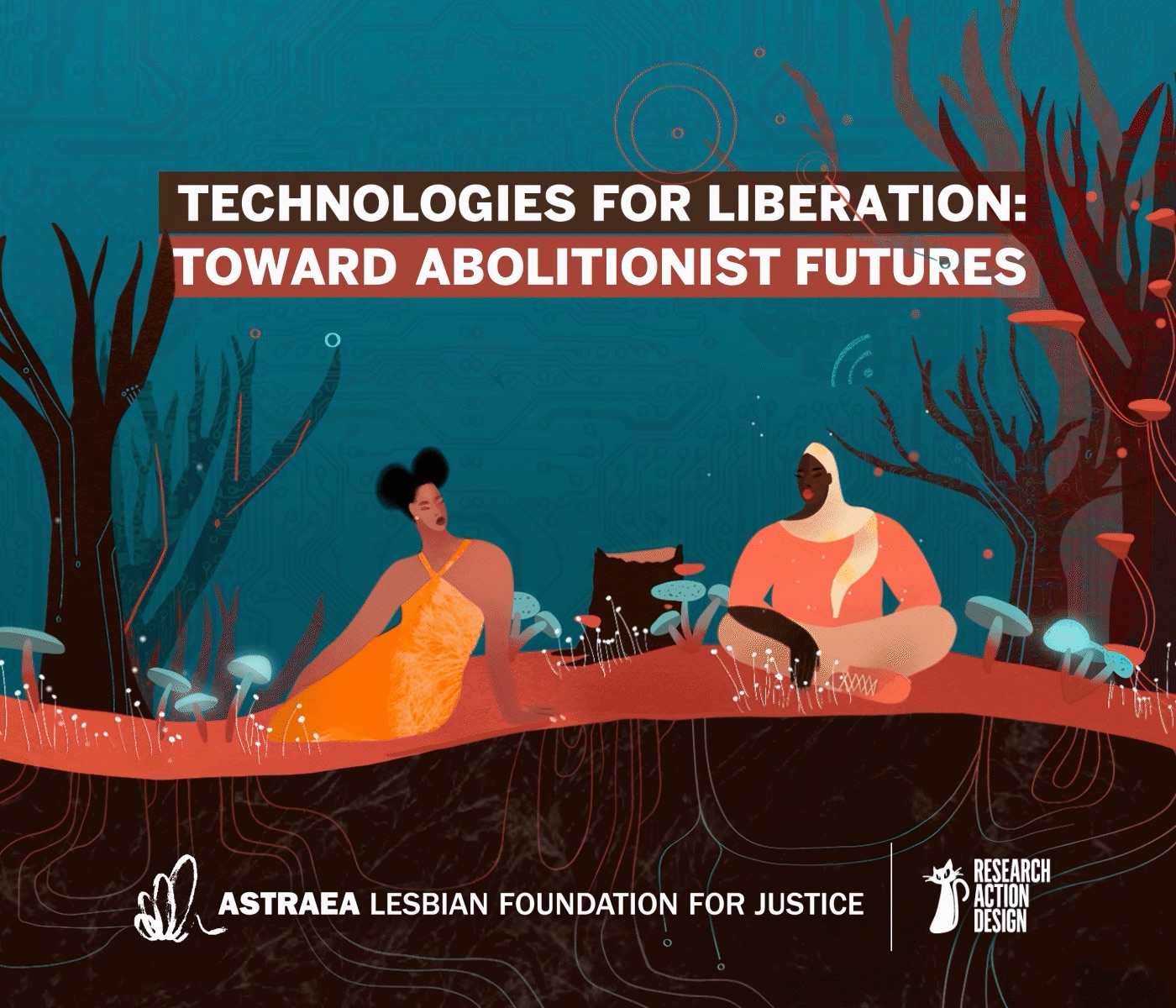This website uses cookies so that we can provide you with the best user experience possible. Cookie information is stored in your browser and performs functions such as recognising you when you return to our website and helping our team to understand which sections of the website you find most interesting and useful.

Dear Friends,
We’re so excited to share our newest report, Technologies for Liberation: Toward Abolitionist Futures!
Across the U.S., queer, trans, Two-spirit, Black, Indigenous, and People of Color (QT2SBIPOC) organizers are leading powerful movements for abolition and decriminalization. Through expansive, imaginative, community-led organizing, they are envisioning a future that is safe for us all.
In recent months, it has been galvanizing to witness dialogue around abolition become more mainstream in the United States. Simultaneously, the aggressive expansion of the webs of criminalization, surveillance, racism, and white supremacy continue to be a terrifying reality for so many. Technologies designed to collect personal information are deployed to control, police, and surveil QT2SBIPOC communities, and limit the flow of money and power. Narratives of ‘safety’ and ‘security’ are often conflated within state narratives to justify the use of surveillance technologies on the public.
“We’re seeing this conflation of safety and security that has caused a great deal of harm. Law enforcement and city government tout increasing safety for communities and almost always use the security mindset to do that. We’re trying to drive home the narrative that surveillance is not safety. Safety is knowing who your neighbors are. Safety is a resource community center. Safety is thriving public education. Safety is making sure that your neighbors have water and food. Those are things that are safe.” – organizer and researcher
Technologies for Liberation: Toward Abolitionist Futures explores the disproportionate impacts of mass criminalization and surveillance technologies on QT2SBIPOC communities. It amplifies the bold, intersectional, community-centered movement interventions, technologies, and responses that organizers from within these communities are employing to create safer, more joyful, and more just societies.
Yet, as the report finds, there is an immense gap in resourcing for this type of liberatory organizing. Philanthropy has a critical role to play in funding, fueling, and sustaining this ecosystem. Through concrete recommendations and strategies, the report is an invitation to prioritize and support these dynamic movements rooted in abolition, transformative justice, and healing justice.
We are grateful to Research Action Design (RAD) and the generous movement technologists and organizers who collaborated with us to bring this report to life. Filled with powerful organizing examples, critical evidence, and rich illustrations, Technologies for Liberation: Toward Abolitionist Futures is just a glimpse into the critical work of these brilliant movements. We hope it inspires and energizes you, as it has us.
In Solidarity,
Brenda Salas Neves, Senior Program Officer


